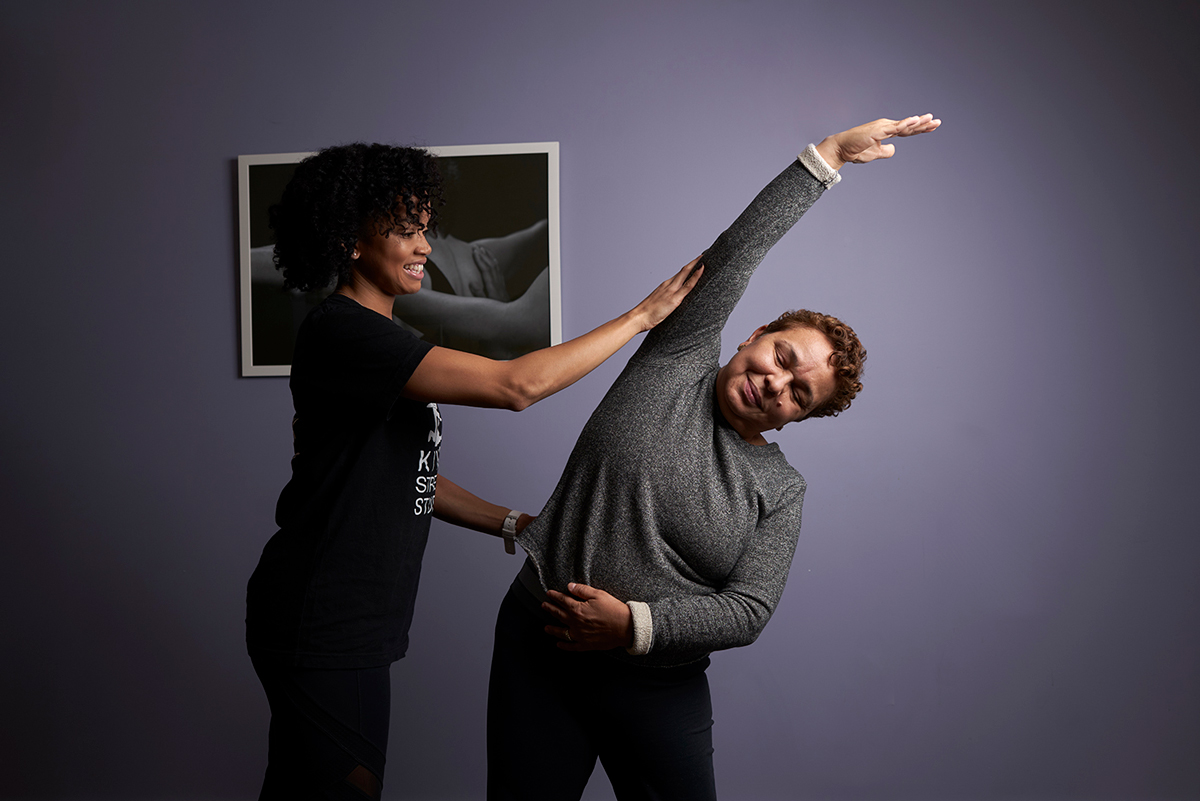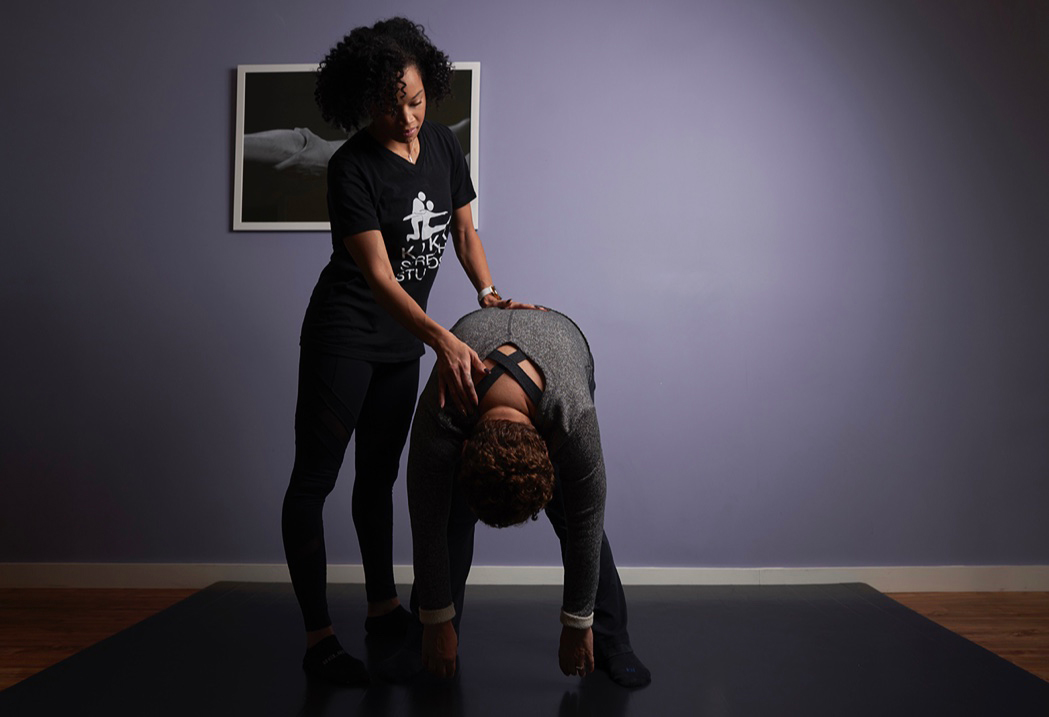
Photograph courtesy of KIKA Stretch Studios
“You’re in your late 20s,” the therapist says.
I nearly blush. Turning 46 has hit me like a ton of bricks, with weaker eyesight, gray hair encroaching on blonde, and unexplainable aches and pains that I talk about too much and that may or may not be tied to the weather. But he says I’m in my late 20s—maybe my expensive, multi-step skincare routine is paying off?
No, he isn’t talking about my complexion or youthful exuberance. He’s talking about my Stretch Age, a measure that KIKA Stretch Studios in Atlanta uses to determine how flexible you are, and how to make you more lithe and less tense, sore, and stiff.
KIKA is just one of numerous stretch-focused studios now in Atlanta, along with Motion Stretch, Stretch ATL, and STRETCH Kinetics. They’re capitalizing on a nationwide trend; in 2017, stretch, recovery, and meditation studios were the most popular on ClassPass.
But stretching, as it turns out, is a topic so divisive, it threatens to tear apart the fitness community like it’s an overworked hamstring.
Harvard Medical School says stretching is important. Painscience.com says stretching has no measurable benefits. The New York Times has offered “Reasons Not to Stretch.” Shape magazine offers six reasons why you should.
Fitness pros also find themselves divided, sometimes in the same paragraph: “The foundation of any good exercise [program] should be mobility and flexibility, and most of us would benefit from more time spent stretching,” writes Jean-Claude Vacassin, a fitness blogger and health club founder, in a newspaper column. “In some cases, stretching might be best avoided.”
David Roche, a coach and the author of “Happy Runner,” is equally non-committal in Trail Runner Magazine: “Should you do yoga? Should you stretch at all? How about athletes over 40 that are losing flexibility each year? Those are questions without certain answers, though you can probably find a study that supports every proposition imaginable.”
One study even debunked the most widely held assumption: that stretching, whether conducted before or after exercise, can reduce muscle soreness later.

Photograph courtesy of KIKA Stretch Studios
The controversy didn’t keep me from visiting KIKA, and sitting on the mat for the Stretch Age test. It’s a lot like that sit-and-reach that many of us did during the now-canceled Presidential Fitness Tests in gym class. The farther you can reach on KIKA’s mat—the whole session takes place there, not on a table—the younger your Stretch Age.
After the test, a KIKA Method therapist moved me through stretches to loosen tight muscles and reduce pain and stress. Rotating my shoulders slowly, turning my head side to side, figure-four stretching my legs, gently pulling my arms overhead as I leaned back over an exercise ball—the process promised to release muscle tension and improve flexibility.
At the end of the appointment, I took the Stretch Test again, and I could reach farther. I was, as the therapist said, suddenly another three years younger. I didn’t blush, but I did feel more relaxed, limber, and firmly on the side of stretching.









![The North Carolina Museum of Natural Sciences’ newest exhibit is a [pre]historic first](https://cdn2.atlantamagazine.com/wp-content/uploads/sites/4/2024/04/DD-3-100x70.jpg)



